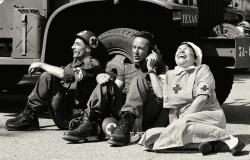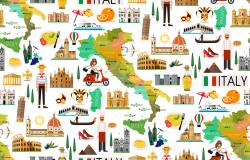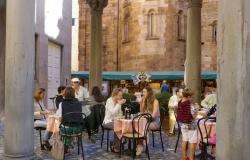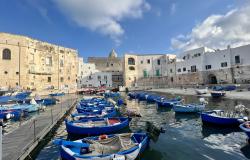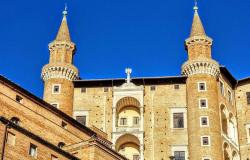Italian Lessons
by Alesha Allen |
Possessive adjectives indicate ownership of something, for example:
Quella è la mia pizza! - That’s my pizza!
In English, they correspond to my, your…
by Alesha Allen |
You may have heard the word salute in Italian. It can be translated in the following ways:
- Health / wellbeing
Bere troppo alcol fa male alla salute…
by Alesha Allen |
We can use exclamations to express a range of emotions including happiness, sadness, surprise, anger, excitement, enthusiasm and disgust. Learning some Italian…
by Alesha Allen |
If you’d like to say ‘Florence is more beautiful than Venice’ or ‘Neapolitan pizza is nicer than Roman pizza’ or ‘The sea is bluer in Sardinia than in Puglia…
by Alesha Allen |
Ci and ne are called particelle (particles) and are widely used in Italian. You may have heard them or seen them written down but were not sure how…
by Alesha Allen |
Prepositions are short words that show the relation of a noun or pronoun to other words in a sentence. Here is a lesson on prepositions to help you use then…
by Alesha Allen |
Piacere means ‘to like’ in English but a more literal translation would be ‘to be pleasing’. In English we say ‘I like Italian’ but in Italian we would say ‘…
by Alesha Allen |
Quali sono i tuoi passatempi? When meeting a new person in Italy you may be asked this question - what are your hobbies? The word hobby is also used in Italian…
by Alesha Allen |
Adverbs - avverbi in Italian - are used to modify a verb, an adjective or another adverb.There are different types of adverbs.
Adverbs of…
by Alesha Allen |
Here are some useful words to help you ask questions in Italian:
Dove- Where
It can be followed by a single verb, for example:
Dove abita Anna?- Where does…
Suggested Italian Properties
Featured experiences in Italy
Culture and Art, Outdoor Activities, Tour Operator, Tours
Abruzzo
Culture and Art, Food & Wine, Shopping, Tours
Milan
Cooking School, Food & Wine, Outdoor Activities, Tours
Barolo
Culture and Art, Food & Wine, Tour Operator, Tours
Marche

